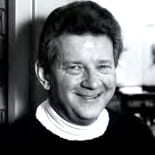H. Alan Wood
Professor Emeritus
Office/Lab: B1
Email: haw5@cornell.edu
Research Overview: Alan received a Ph.D. from the Department of Plant Pathology at Purdue University
and joined BTI in 1968. His graduate and early research at BTI included the first
documentation of the divided genomes of component plant viruses. In the early 70s,
he studied the ds-RNA viruses of plants and fungi in collaboration with Gert Streissle,
Peter Day and Robert Bozarth. During this time he also collaborated with Lloyd Old’s
group at the Sloan Kettering Cancer Institute on hybrid antibody research.
During 1974-75 Alan was a Visiting Fellow with Bob Shepherd in the Dept. of Plant
Pathology at UC Davis developing techniques for the inoculation of plant protoplasts
with cauliflower mosaic virus particles and DNA. From 1975-78, he was a member of
the BTI Building Committee responsible for planning the BTI facility on the Cornell
University campus.
From 1975 to 1996 his primary research interest was in the area of insect
virology/pathology, developing the first insect-virus tissue-culture plaque assay
techniques and the first viral-induced protein studies with baculoviruses. In the early
1980’s he began recombinant DNA studies with baculoviruses.
On 8/9/89, he performed the first U.S. field release of a recombinant virus, using a
recombinant form of the Autographa baculovirus to control cabbage loopers, for which
BTI got 5 minutes on the “Today” show. In 1993 a similar experiment was conducted for
the U.S. Forest Service with a baculovirus to control gypsy moths.
From 1989 to 1994, he chaired the Cornell University Recombinant DNA Committee
and in 1994 was appointed to the USDA Agricultural Biotechnology Advisory
Committee. In 1993, together with Pat Hughes and Lee Compton (former BTI post
doc), he co-founded AgriVirion, Inc., a biotech company producing pharmaceutical
proteins in larvae with the baculovirus expression vector system. AgriVirion merged
with Chesapeake PERL Inc. in 2002.
From 1991 to 2001, Alan participated in collaborative research projects with Mike
Shuler, Chair, Dept. of Chemical Engineering at Cornell. The original NSF research
projects focused on optimization of insect cell culture bioreactors for the production of
recombinant proteins and included Bob Granados. Later studies were conducted for
NASA to elucidate the influence of gravity and various culture conditions on the
eukaryotic glycosylation pathway.
In April of 2001 he assumed the position of founding Director of the Life Sciences and
Biotechnology Institute at Mississippi State University where he was involved in
research, teaching and economic development. During 2003-04, at the invitation of the
Secretary of Agriculture, he was a participant in an eight member USDA Research,
Education and Economics Task Force, which wrote a report for the USDA and
Congress recommending the formation of a National Institute for Food and Agriculture.

